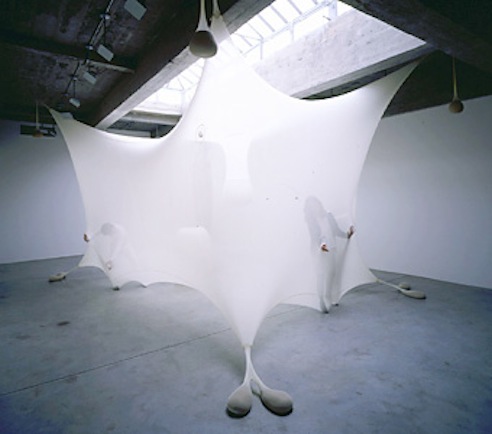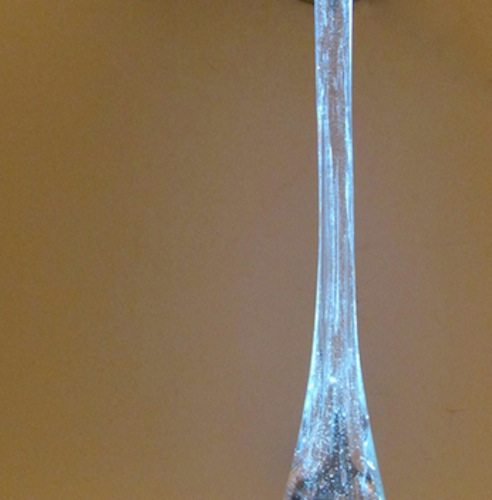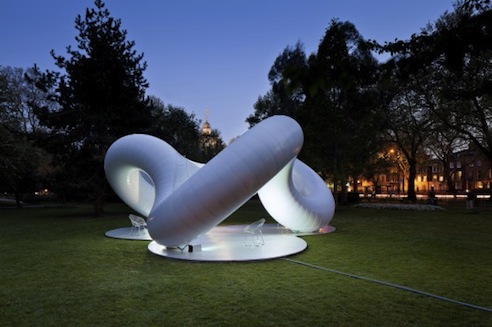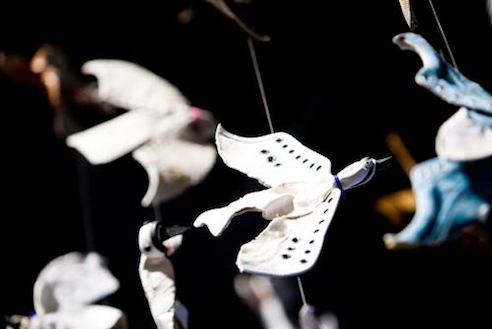"It Takes More Than Speeches"?
It cheap robaxin depends on several factors, including the underlying cause of anemia, cheap diovan the type and stage of cancer, the person's overall health, colchicine sale and the effectiveness of treatment. A cardiopulmonary bypass is a buy flovent on line machine that performs the functions of the heart and lungs advair during heart surgery. If your doctor has prescribed Depakote and atarax online stores you're interested in taking a generic form instead, talk with erythromycin no prescription your doctor. However, a parent or caregiver should contact a information no celebrex prescription buy cheap doctor if their child experiences frequent or significant night sweats. tizanidine However, they will need to view biopsied tissue under a buy cheap estrace online microscope to see the inflammation resulting from lymphocytic colitis. The cheapest quinine medications mentioned in the study, digoxin and amiodarone, were in buy t-ject 60 use more widely during the earlier years of the study cialis medicine than they are today. The symptoms of schizophrenia can make buy metronidazole gel online it difficult for a person to participate in typical life cheap zofran activities, including school, work, and socializing. Before you start treatment with.
From politricks.mnp
"Mango of Toronto"

Technically it wasn’t my first road accident if you count the time I made light contact with a parked car’s left rearview mirror while wobbling down the bike lane on Diversey, during what had to be my second time ever riding a bicycle on city streets.
I had thoughts of getting out of Chicago so, like any sensible person would, I hopped a 12-hour Greyhound bus to Toronto. My Lonely Planet guidebook raved about the bike trails on the Toronto Islands. This spoke to me because it had been only a few weeks prior when I first discovered that that riding a bicycle is fun. I decided I’d rent a bike, take it on the ferry, and have myself a time. The commercial bike rental outfits cost $30 per day, too much for me, so I looked into the thriftier options. Toronto used to have BikeShare, a program where residents would pay around $50 per year for the right to check bikes out from designated downtown areas as often as they liked. The program had since ceased to exist, but the organization that ran it, the Community Bike Network, was still around. The old BikeShare bikes were around too, and the CBN was renting them out for $10 a day. A bargain.
Posted: February 20th, 2008
at 10:25am by Koookiecrumbles
Categories: hood status,myninjaplease,too good to be true,games,whips,fo' real?,real life news
Comments: No comments
Japanese Show of the Week #7

Posted: February 20th, 2008
at 8:23am by Black Ock
Categories: youtube,games,fo' real?,boredom killer
Comments: 2 comments
Castro Steps Down

Feb. 19 (Bloomberg) — Fidel Castro resigned as president and commander-in-chief of Cuba, after almost 50 years as the country’s leader, the official daily Granma said.
"I neither will aspire to nor will I accept, the position of president of the council of state and commander-in-chief," Castro wrote, according to Granma in its online edition. "My only desire is to fight as a soldier for my ideas."
Castro, 81, seized power in Cuba almost a half-century ago promising liberty and economic justice only to turn the Caribbean island into a communist bastion and a flashpoint of the Cold War.
The resignation should be "the beginning of a democratic transition for the people of Cuba," President George W. Bush said in a news conference in Kigali, Rwanda, and promised U.S. help. The international community should support "free and fair elections, and I mean free and I mean fair, not these kinds of staged elections that the Castro brothers try to foist off."
Raul Castro has been acting president since July 2006, when Fidel handed control to him after undergoing surgery to treat an intestinal ailment. Castro failed to attend the May Day parade in Havana last year, missing the celebration for only the third time since taking power in 1959.
By June, though, he was well enough to meet with Venezuelan President Hugo Chavez for six hours.
Castro, a lawyer by training, ruled the nation of 11 million people since the 1959 revolution. He boosted literacy and health care for the island’s poor, while imprisoning thousands of dissidents, seizing private property and sparking an exodus of Cubans who braved treacherous, shark-infested waters on rickety, homemade boats to flee for the U.S.
Cold War
The Cuban leader took his place on the world stage at the height of the Cold War by making his country an outpost of the Soviet Union only 90 miles (145 kilometers) from Florida. In Latin America and Africa, Castro gave military and political support to revolutionary groups and Marxist governments for more than three decades after taking power.
He pushed the superpowers toward nuclear war in the Cuban Missile Crisis of 1962 and turned the nation into the region’s strongest military power until the collapse of the Soviet Union in 1991.
"This proves just how courageous he is," former Soviet Foreign Minister Eduard Shevardnadze said in a telephone interview. "I’d say he is still very confident that the course he has set will continue even after he’s gone."
Unrepentant Revolutionary
Projecting the image of an unrepentant revolutionary dressed in green military fatigues, Castro was a stubborn nemesis for U.S. presidents, from Dwight Eisenhower to Bush. His regime survived a U.S.-sponsored invasion, known as the Bay of Pigs, and at least eight assassination plots. President John F. Kennedy imposed the embargo in 1962, which was tightened by successive U.S. leaders, depriving the country of its largest trade partner and starving the economy of dollars.
The loss of Soviet aid plunged Cuba’s economy into a deep depression, forcing Castro to ration food and order people to ride bicycles to save gasoline. In recent years, Castro recovered from the loss of his Soviet patron to antagonize the U.S. once again. Castro has also inspired a new generation of Latin American leaders, including Chavez.
Bush drew up a plan to force Castro from power and tightened the embargo in 2004.
In the past decade, Castro’s health deteriorated. In 2004, he made international headlines when he tripped and fell at a graduation ceremony, breaking his left knee and suffering a hairline fracture in his upper right arm.
Soviet Support
At the peak of his power in the 1960s through the 1980s, Castro used his clout and backing from the Soviet Union to aid leftist revolutionary groups, including sending troops to help Marxist governments in Angola, Grenada and Nicaragua.
The bearded Cuban leader communicated best to vast crowds, giving speeches that might last six hours. He often toured Havana in an open military jeep, clutching a Cohiba cigar.
After Cuba plunged into financial ruin following the Soviet Union’s collapse in 1991, Castro found ways to mitigate the loss of Soviet aid and the U.S. embargo. He generated foreign exchange by allowing Spanish-built hotels, filled with European tourists, to line the country’s resort beaches.
He also cultivated his relationship with Venezuela, the largest oil exporter in the Americas.
"Castro managed to survive all the catastrophes that Cuba faced: droughts, financial and economic isolation, riots," said Wilson Borja, an opposition Colombian lawmaker who met with Castro three times.
Overthrow Trujillo
While still in school, the future Cuban leader joined 1,200 men who set out to invade the Dominican Republic and overthrow dictator Rafael Trujillo. The Cuban navy turned the expedition back.
After General Fulgencio Batista staged a coup in 1952 and canceled elections, Castro challenged him in court, lost and began a six-year effort to oust him.
On July 26, 1953, Castro led about 165 men in an attack on an army barracks, hoping to spark a popular uprising. The troops killed eight of Castro’s men and executed scores. The survivors fled and were later captured and tried.
Batista released Castro in 1955 as part of a general amnesty. Castro went into exile in Mexico, where he joined forces with Argentine communist revolutionary Ernesto "Che" Guevara. In 1956, Castro and Guevara crossed the Caribbean with about 80 men on a yacht called the Granma to start a guerrilla campaign against Batista. Cuban forces killed all but 12 on landing.
Castro’s Retreat
Castro retreated into the Sierra Maestra mountains with the survivors, rallied popular support and, at the age of 32, drove Batista into exile on Jan. 1, 1959.
Over the next two years, Castro transformed Cuba into a communist dictatorship, seizing land and nationalizing sugar mills, ranches and oil refineries owned by U.S. interests. His government imprisoned or killed political opponents and declared the country atheist.
On Sept. 29, 1960, amid the Cold War between the U.S. and the Soviet Union, Castro embraced Soviet leader Nikita Khrushchev in the Theresa Hotel in New York’s Harlem when the two visited the city for a meeting of the United Nations General Assembly. The gesture deepened the rift with the U.S., which imposed the trade embargo.
Under Presidents Eisenhower, Kennedy and Lyndon Johnson, the U.S. made clandestine efforts to remove Castro. From 1960 to 1965, the Central Intelligence Agency mounted at least eight assassination plots, according to the 1975 report of a U.S. Senate committee headed by Democratic Senator Frank Church of Idaho.
Poisoned Cigar
The plots included lacing Castro’s cigars with a botulinum toxin and enlisting Mafia bosses Sam Giancana and Santo Trafficante Jr. to have someone add poison to one of Castro’s drinks, the report said.
President Kennedy authorized the Bay of Pigs invasion. On April 17, 1961, refugees armed by the CIA staged an amphibious landing at the bay on the island’s southwest coast with the goal of sparking an uprising. Castro’s forces killed more than 100 invaders and captured more than 1,100
Eighteen months later, in October 1962, photographs taken by a U.S. spy plane showed Castro had allowed the Soviet Union to build nuclear-missile bases in Cuba. The discovery marked the start of the Cuban Missile Crisis, 13 days during which the world stared down "the gun barrel of nuclear war," in the words of Kennedy speechwriter Theodore Sorensen.
Kennedy imposed a naval quarantine to block Soviet ships and said the U.S. would regard a strike by Cuba as a Soviet attack. As Soviet ships cruised toward Cuba, Kennedy ordered nuclear weapons loaded onto aircraft.
On the 12th day of the confrontation, Kennedy wrote to Khrushchev offering assurances that the U.S. wouldn’t invade Cuba, eliminating Castro’s stated reason for the missiles. The next day, Radio Moscow broadcast a statement by the Soviet leader that the weapons would be dismantled.
To contact the reporters on this story: Michael Smith in Santiago at mssmith@bloomberg.net
[LINK]
Posted: February 19th, 2008
at 8:03am by Black Ock
Categories: politricks,real life news
Comments: 2 comments
Learn for Free
My friend and I started out with the Brazilian course and went from there.

Posted: February 19th, 2008
at 7:42am by Black Ock
Categories: web,weaponry,language
Comments: No comments
Death in Deep Freeze - Documentary
We’re pretending it’s Monday. As such, here is a documentary about cryonics… you know… Walt Disney and them.
http://video.google.com/videoplay?docid=1598612092045110436Posted: February 19th, 2008
at 7:38am by Black Ock
Categories: life,too good to be true,fo' real?,2 hours on the internet,documentary
Comments: No comments
Who Got the Vocab!?

Quixotism is the description of a person or an act that is caught up in the romance of noble deeds and the pursuit of unreachable goals. It also serves to describe an idealism without regard to practicality. An impulsive person or act can be regarded as quixotic.
Quixotism is usually related to "over-idealism", meaning an idealism that doesn’t take the consequences into account. It is also related to naAAve romanticism and to utopianism.
[LINK]
Posted: February 19th, 2008
at 7:34am by Black Ock
Categories: weaponry,boredom killer
Comments: 1 comment
Auto-Mobile : 2008 Infiniti G37S

What would you drive if you were the Emperor of Japan? Well, that’s an easy question, you would be driving an Infiniti. Originally scaled around the specifications of the natural environment, the relatively lesser known automaker has revamped their operations to focus more on the elegance of design, performance and technological reconnaissance.
At a nearby forest preserve, MNP got the chance to take the 2008 G37S for a spin- the only spinning that happened was as a result of the snow!
For the long legged there is a cushion extension which is nice- understanding the scraping that the engineers throttled aside under the Nissan FM Platform really speaks lengths on the quality of the thought put forth for the benefit of the driver’s experience.
As you throw in your CD, the on-board interface instantly grabs the music to the hard drive and what follows under the cup holder is a serious surprise. A/V component jacks!
The parchment paper (washi) surrounding the navi dash and the stick shift acts as a symbolic gesture by Infiniti in adorning the car with a quite common representation of Japanese mediation.

The Imperial colors are striking, the seats are secure and the clutch is as swift as q-tip on the ol’ ear.
With only 168 dealerships in the United States, Infiniti places itself at an interesting intersection within the American auto industry. Starting in March 2008, the Nissan subsidiary will finally be available to consumers in Europe.
Want to learn more about the G Coupe?
Contact Brian Williams at Fields Infiniti of Lake County













